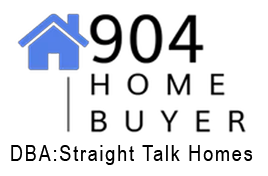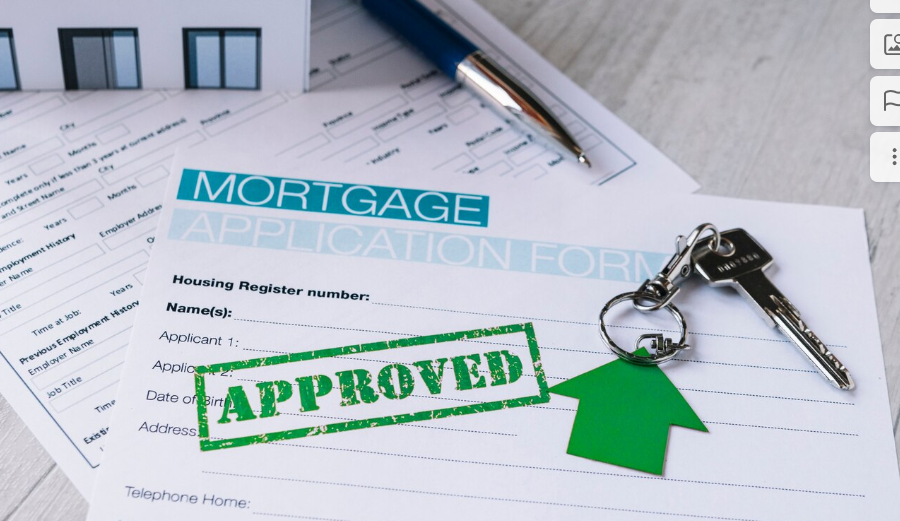How to Sell a Florida Home with a Lien or Judgment Against It
If you’re trying to sell your Florida home and discovered there’s a lien or judgment hanging over it, you’re probably feeling a bit stuck. You're not alone—this happens more often than most homeowners realize. Whether it’s unpaid property taxes, contractor disputes, HOA fees, or a court-ordered judgment, liens can complicate the selling process.
But here’s the good news: You can still sell your home. In fact, cash buyers like 904 Home Buyer specialize in situations just like this, helping sellers move forward without endless paperwork, stress, or delays.
Let’s break down what a lien or judgment really means, how to handle it, and how cash buyers can offer a quicker, easier way out—especially in Florida's fast-moving real estate market.
What Is a Lien or Judgment?
Lien Basics
A lien is a legal claim against a property for unpaid debts. It basically gives a creditor the right to get paid from the proceeds of your home sale. These might come from:
- Unpaid property taxes
- Past-due mortgage balances
- Homeowners association (HOA) fees
- Mechanics’ liens from contractors
- IRS or state tax debts
Judgments: A Bit More Serious
A judgment is a court-ordered decision that a creditor has the legal right to collect a debt. Once recorded against your property, it becomes a lien too—but usually stems from lawsuits (credit card debt, medical bills, personal loans, etc.).
Step-by-Step: Selling a Florida Home with a Lien or Judgment
1. Confirm What You’re Dealing With
Start with a title search. This will reveal all recorded liens or judgments on the property. Your county’s property appraiser’s office or a real estate attorney can help, but if you’re working with a buyer like 904 Home Buyer, they’ll often run the title search for free.
2. Understand the Total Payoff Amount
Get a payoff statement from each creditor. This shows the full amount owed, including fees, interest, and penalties. Some liens accrue interest daily, so timing matters.
3. Negotiate or Settle the Debt
You have a few options here:
- Pay it off: If you can, this is the cleanest way forward.
- Negotiate a settlement: Many lienholders will accept less than full payment if you’re offering a lump sum.
- Use the sale proceeds: If your home has equity, you can use part of the buyer’s payment to pay the lien at closing.
- With judgments, sometimes attorneys can even request a satisfaction of judgment or get it vacated in court under certain conditions.
4. Disclose It (Even If It Feels Uncomfortable)
Florida law requires you to disclose known liens or judgments. It’s better to be upfront. Most buyers—especially those using financing—won’t move forward if the title isn’t clear. But a cash buyer? They may still buy even with the lien in place.
5. Work with a Cash Buyer Who Understands Title Issues
Traditional buyers (using banks or mortgage lenders) usually back out if they see unresolved liens during escrow. The bank won’t finance a property with title defects.
That’s where cash buyers like 904 Home Buyer come in. They don’t need lender approval and are often ready to work around liens. In many cases, they’ll help coordinate the payoff and absorb the headache so you don’t have to.
Why Cash Buyers Simplify the Process
No Bank Involvement
Cash buyers don’t need to meet strict underwriting or loan conditions, so the transaction moves faster—and more flexibly.
As-Is Purchase
Most cash buyers purchase homes as-is, meaning they won’t ask for repairs or upgrades. Even with a lien or judgment, they’re prepared to handle it.
Faster Closings
Instead of waiting 30-60 days, a cash buyer can often close in as little as 7 to 14 days, even with a lien—especially if they’re experienced in this type of transaction.
Help with Paperwork
Some sellers don’t even know how to begin resolving a lien. A seasoned investor or buyer can walk you through the process or connect you with someone who will.
Real-World Example
Let’s say a seller in Jacksonville inherited a home from a relative, only to find out there was an old judgment lien for $12,000 from unpaid credit cards. The house needed repairs and the seller had no funds to pay off the lien upfront.
904 Home Buyer stepped in, made a fair cash offer, and worked with the title company to pay off the lien at closing from the sale proceeds. The seller didn’t need to pay a dime out-of-pocket and walked away with money in the bank.
That’s the power of working with someone who understands Florida’s lien process and is used to solving problems—not walking away from them.
Common Questions
Can I sell a home with a lien if I’m behind on property taxes?
Yes, but the taxes will need to be paid off at or before closing. A cash buyer can roll that into the purchase process.
What if the lien is more than the home’s value?
That’s trickier but not impossible. Some lienholders will accept a reduced payoff if you show hardship or no equity. This is called a short sale scenario.
Do I need a lawyer to sell a house with a judgment?
Not always, but in complex cases or if the judgment is contested, legal guidance helps. Cash buyers often have a legal team to assist.
Can the buyer take over the lien?
Not directly. Liens attach to the property, not the owner, so they must be cleared before the title transfers. But a buyer can
use the proceeds to clear it for you as part of the closing.
The Bottom Line
Selling a Florida home with a lien or judgment isn’t impossible—it just takes the right approach. The key is to understand what you owe, be honest about the situation, and find a buyer who’s ready to work with you instead of running for the hills.
904 Home Buyer has helped countless homeowners navigate liens, legal claims, title issues, and everything in between. Whether you need a fast close, flexible terms, or just someone to take the stress off your shoulders, this might be the cleanest path forward.
Because when you’re ready to move on, the last thing you need is legal red tape slowing you down.

Salim Omar
Salim is a straight-talking CPA with 30+ years of entrepreneurial and accounting experience. His professional background includes experience as a former Chief Financial Officer and, for the last twenty-five years, as a serial 7-Figure entrepreneur.









